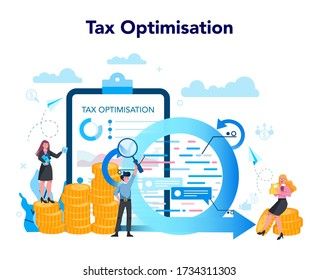
Tax Planning and Optimization: Minimize Liabilities
admin
- 0
Tax planning and optimization are crucial elements for individuals and businesses to minimize their tax liabilities. Effective tax planning strategies can help in legally reducing the amount of taxes owed, maximizing deductions, and taking advantage of various tax incentives and loopholes. This article aims to provide an in-depth understanding of tax planning and optimization, its importance, and some key strategies to consider.
What is Tax Planning?
Tax planning refers to the process of analyzing an individual’s or an organization’s financial situation to legally minimize tax liabilities. It involves strategically planning and organizing finances, investments, and expenditures in a manner that reduces the amount of taxes owed. Tax planning can be done on an annual basis or throughout the year to ensure maximum tax efficiency.
Importance of Tax Planning
Tax planning is essential for several reasons: Minimize Tax Liabilities: The primary objective of tax planning is to minimize tax burdens by taking advantage of all available deductions, exemptions, and credits. Maximize After-Tax Income: By reducing tax liabilities, tax planning helps individuals and businesses retain a larger portion of their income, thereby increasing their net after-tax income. Compliance with Tax Laws: Tax planning ensures that all tax-related obligations and responsibilities are fulfilled in compliance with applicable tax laws, thus avoiding legal disputes and penalties. Optimize Financial Decisions: Tax planning provides a comprehensive view of an individual’s or business’s financial situation, enabling them to make informed decisions regarding investments, expenses, and other financial matters.
Effective Tax Planning Strategies
Here are some key strategies to consider for effective tax planning:
1. Utilize Tax-Favored Savings Accounts
Contributing to tax-favored savings accounts, such as Individual Retirement Accounts (IRAs) and 401(k) plans, allows individuals to save for retirement while enjoying tax benefits. Contributions to these accounts are often tax-deductible, and investment earnings grow tax-free until withdrawal.
2. Leverage Capital Gains and Losses
Planning the sale of assets strategically can help individuals offset capital gains with capital losses, reducing their overall tax liability. This involves carefully timing asset sales and considering tax implications before making transactions.
3. Take Advantage of Deductions and Credits
Knowing and applying all available deductions and credits is vital for effective tax planning. Deductions, such as mortgage interest, medical expenses, and charitable contributions, can significantly reduce taxable income. Tax credits, such as the Child Tax Credit or Earned Income Tax Credit, offer a dollar-for-dollar reduction in tax liability.
4. Employ Tax Deferral Strategies
Tax deferral strategies involve postponing the payment of taxes to a later year. This can be achieved through strategies like deferring income, using installment sales, or reinvesting profits. By deferring taxes, individuals and businesses have the opportunity to benefit from potential investment growth before paying taxes.
5. Establish a Tax-Efficient Investment Portfolio
Constructing an investment portfolio with tax efficiency in mind can help minimize tax burdens. Investing in tax-efficient funds, holding investments for the long term to benefit from reduced capital gains rates, and considering tax-loss harvesting techniques are some strategies to consider.
6. Incorporate Tax Planning into Estate Planning
Tax planning should also be an integral part of estate planning. Strategies like gifting assets, establishing trusts, and utilizing estate tax exemptions can help minimize tax liabilities for beneficiaries.
Conclusion
Tax planning and optimization play a vital role in minimizing tax liabilities for individuals and businesses. By strategically planning and organizing finances, taking advantage of deductions and credits, and employing various tax-saving strategies, individuals and businesses can legally reduce their tax burdens. It is important to consult with qualified tax professionals or financial advisors to ensure the appropriate application of these strategies based on individual circumstances. Through effective tax planning, individuals and businesses can optimize their after-tax income, remain compliant with tax laws, and make well-informed financial decisions.

